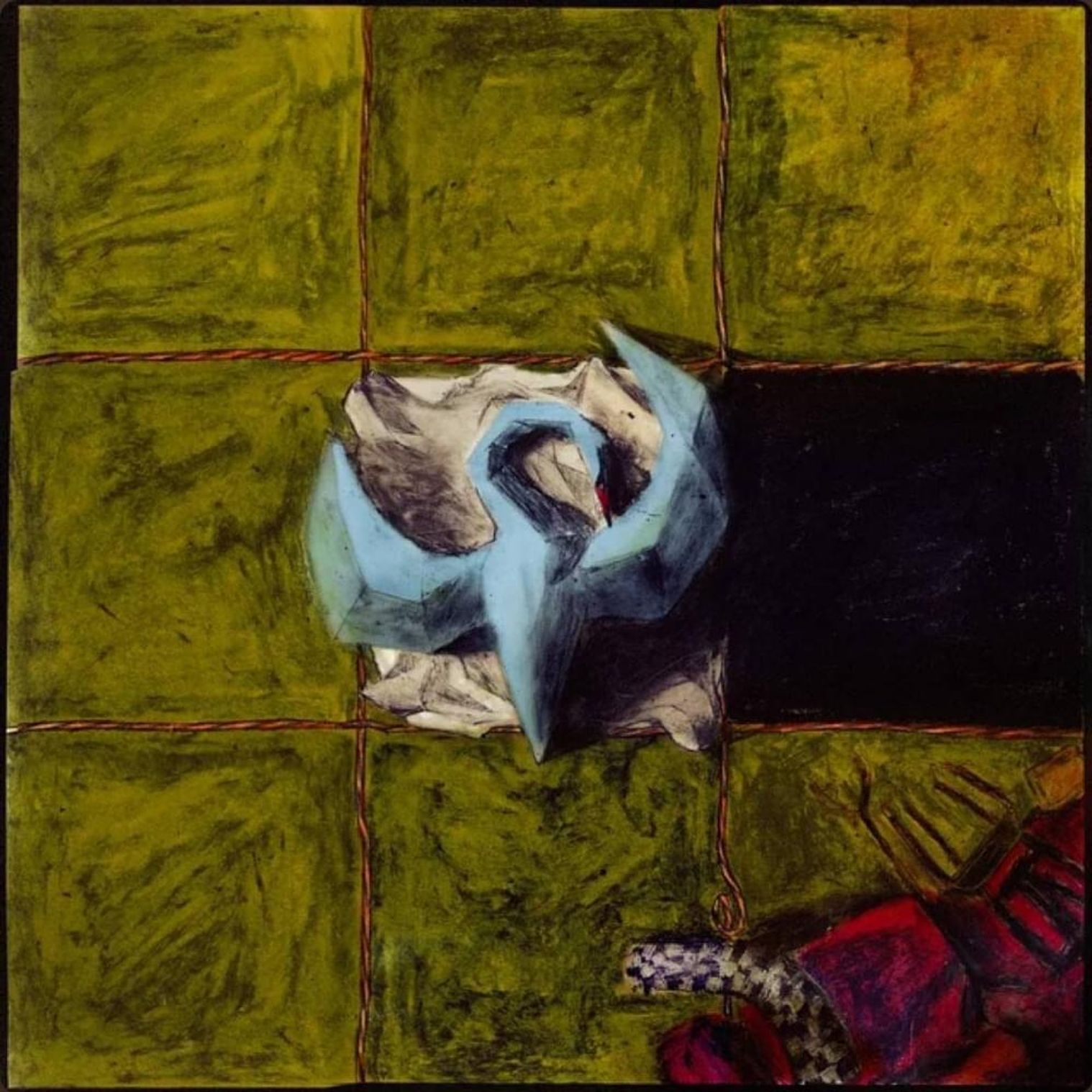Marcus Mumford used to be Laura Marling's drummer. It's so weird to think about that now. It's weird, in the first place, to think about Marling even needing a full-time drummer. And it's much, much weirder than that to think that said drummer would go onto become a braying, beefy arena-folk star -- the type of artist whose work would reveal the whole banjo/bolo-tie thing as the pose that it most certainly is. Indeed, three out of four members of Mumford & Sons used to back up Marling on tour. They all come out of the same scene, the short-lived folk-revival thing that blurped up in London in the mid-'00s. Both Marling and the Mumfords can still trace their sounds back to those old shared enthusiasms. But while the Mumfords have gone on to translate that sound into effective-but-hamfisted festival-singalong material, Marling has gone the opposite direction, turning folk music into something personal and insular and strange. Marling's new Semper Femina is the twistiest, most expansive, most particular thing she's done yet, and it's probably also the best.
Marling is just 27, but she's already six albums deep into her career. Those first three albums were delicate and well-executed but ultimately pretty conventional singer-songwriter music. But after those three albums, Marling took some time away from music, shaving her head and getting work as a Los Angeles yoga instructor. She reemerged two years later with 2013's Once I Was An Eagle, an album that references Bill Callahan in its title and PJ Harvey in its brittle, blues-addled musical direction. So maybe that short sabbatical helped Marling reorient herself and find a new direction. And in interviews, she's said that Semper Femina is inspired by that time in Los Angeles -- and, more specifically, to a friendship that turned into something resembling attraction or love.
In this interview cycle, Marling has been fond of saying that all friendships are sexual, at least on some level, and that the categories into which we slot things are all fake and made-up anyway. Listening to Semper Femina without knowing its backstory, as I did for weeks, you might assume that it was just a straight-up breakup album: "Now she’s gone and I’m all alone / And she will not be replaced / Stare at the phone to carry on / But I have made my mistake." But knowing more about the way Marling values ambiguity, the album makes a little more sense. Marling sings in a clear, rich tenor, but this time around, she delivers her lyrics in conversational clumps, like she's trying to put words to what's going on in her head in real time. She sings the way introverted people talk when they (or, who am I kidding, when we) are doing our best to reach out to people -- people whom we might love deeply but who still seem like they're hundreds of miles away. And while Marling uses her voice in graceful and evocative ways, she's still hinting at great storms of emotion under the surface, and she lets us sense those storms.
Musically, Semper Femina isn't experimental, exactly. It makes for sublime sunny-afternoon music, and you could probably play it in a car with your mom without making anyone uncomfortable. But Marling also shows off a quiet and understated sense of exploration. It's there in the opener "Soothing," with its lightly off-kilter, jazz-addled groove, or in the casually badass quasi-rockabilly guitar solo that erupts toward the end of closer "Nothing, Not Nearly." "The Valley" is hushed and circular, with strings and fingerpicked chords and choral harmonies that feel oddly ritualistic. "Don't Pass Me By" has classic AM-radio guitar tremolo and a string section that seems to fight the song itself every step of the way. There are moments here that evoke Nick Drake or Bob Dylan or Joni Mitchell or Nancy Sinatra -- but only the most prickly and far-out moments from all of them. If Semper Femina counts as a folk music, then it really proves that folk music doesn't have to fall into old patterns. It's an album that keeps you on your toes throughout.
It can be easy to undervalue someone like Marling, someone who works in an unapologetically sincere musical form and who continues to crank out music like she's her genre's equivalent of Gucci Mane. But for years now, Marling has been finding fascinating new directions for music that most of us didn't realize had new directions left to explore. Semper Femina never forces anything, but it's one more beautifully executed left turn in a career full of them. May Marling remain so confident but so unsettled for years to come.
Semper Femina is out 3/10 on Marling’s own More Alarming Records.
[videoembed size="full_width" alignment="center"][/videoembed]
[videoembed size="full_width" alignment="center"][/videoembed]
[videoembed size="full_width" alignment="center"][/videoembed]
[videoembed size="full_width" alignment="center"][/videoembed]
Other albums of note out this week:
• The Magnetic Fields' ambitious five-disc autobiographical opus 50 Song Memoir.
• The Shins' big return Heartworms.
• Jay Som's badass lo-ish-fi debut Everybody Works.
• Hater's commanding postpunk debut You Tried.
• Hurray For The Riff Raff's rootsy and convincing The Navigator.
• Your Old Droog's clattering New York rap reduction Packs.
• Jacques Greene's lush and assured dance album Feel Infinite.
• Planning For Burial's ambient metal meditation Below The House.
• R. Stevie Moore and Jason Falkner's full-length collab Make It Be.
• Thelma's lovely, intoxicating self-titled debut.
• Sir Was' psychedelic pop debut Digging A Tunnel.
• Tennis' comfortably indie-pop Yours Conditionally.
• Jim O'Rourke and Kassel Jaeger's collaboration Wakes On Cerulean.
• Bonny Doon's chugging, melancholic self-titled debut.
• Porter Ray's art-damaged rap album Watercolor.
• John Andrews & The Yawns' blurry folk-rocker Bad Posture.
• Thee Oh Sees side project Damaged Bug's Bunker Funk.
• Bad Religion frontman Greg Graffin's solo album Millport.
• Condemned's death metal shit-ripper His Divine Shadow.
• Paul Weller's score for the movie Jawbone.
• Rolling Blackouts Coastal Fever's The French Press EP.
• Roland Tings' Each Moment A Diamond EP.






